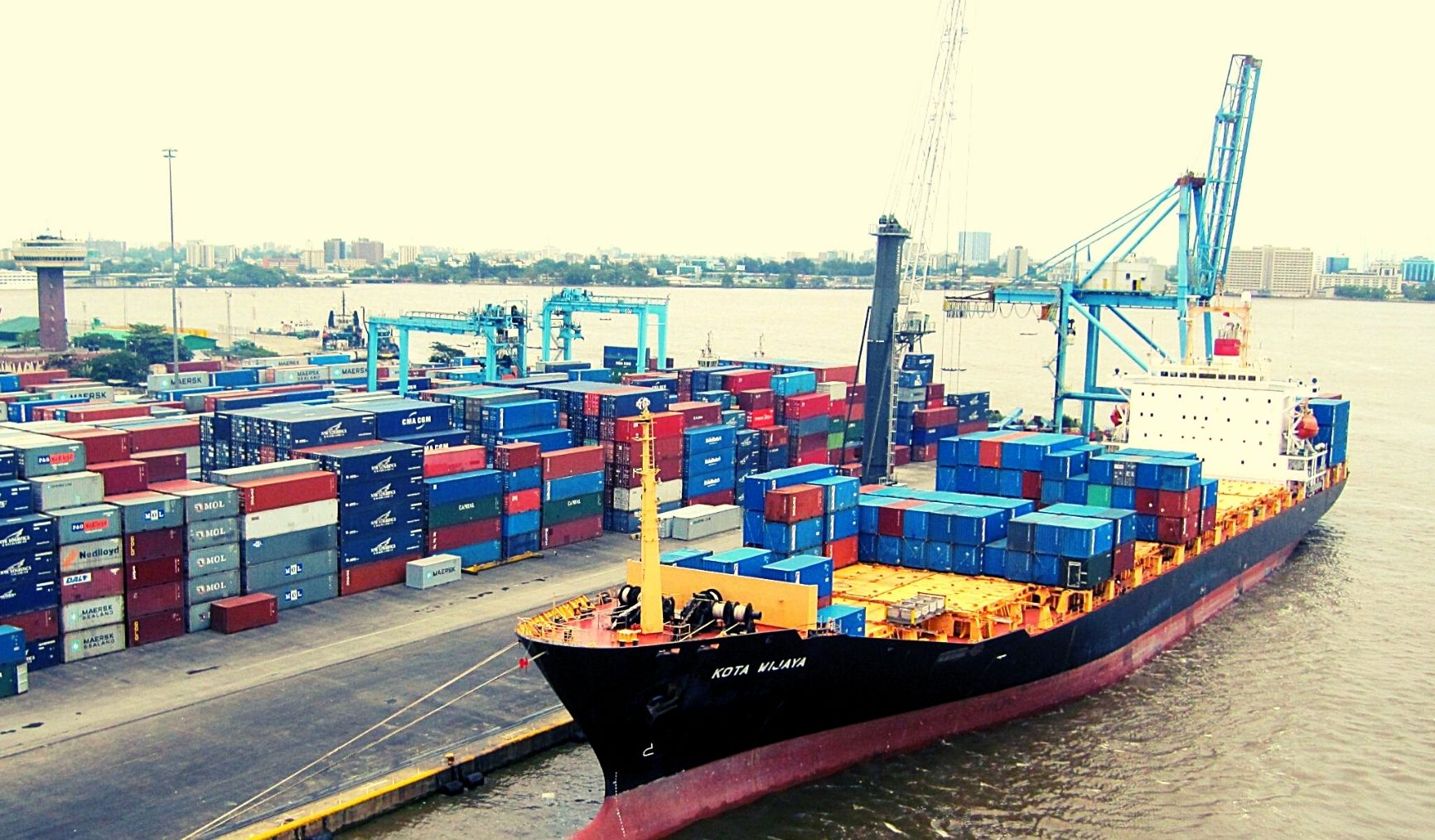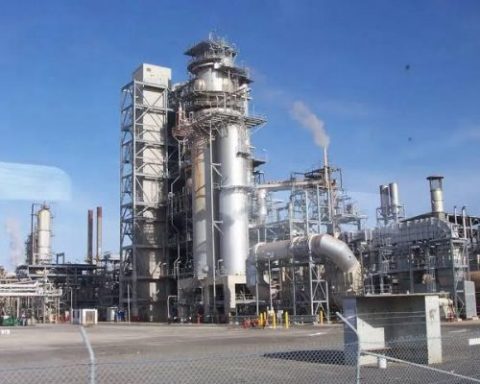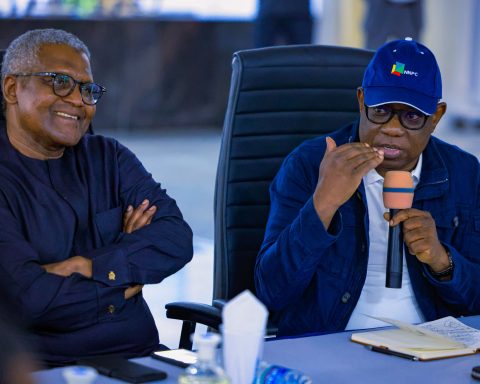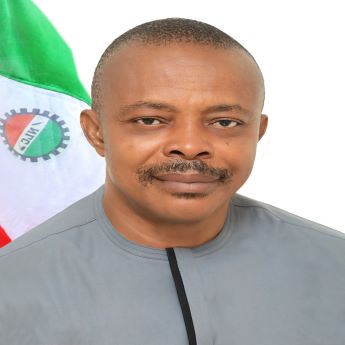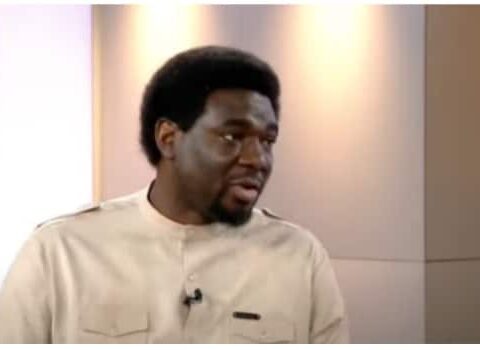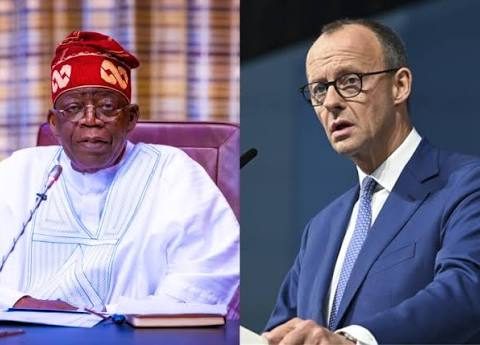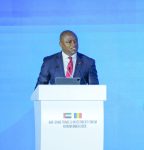Calls for decentralisation of seaport infrastructure across Nigeria have gained momentum in recent times as citizens highlight the positive implications on the economy.
An economic expert and public affairs analyst, Kelvin Emmanuel, has been consistent in his advocacy for the Federal Government to ensure the development of seaports across the country to boost water transportation and facilitate regional economic development.
Join our WhatsApp ChannelHe faulted the decision of the Nigerian Government to build another seaport in Lagos while abandoning the development of the Calabar Deep Sea Port, Onne and other ports in the Eastern Maritime corridor.
Mr Emmanuel said it is a deliberate attempt by “Lagos establishment” to frustrate other ports across the country in order to keep traffic in Lagos.
There have been growing concerns that the Federal Government is concentrating efforts on developing seaports in Lagos while leaving other ones in other parts of the country, especially the Eastern Maritime corridor.
Since the resolution of the legal tussle that stalled the contract for dredging of the Calabar Port in 2022, nothing has been done about it since then.
In 2006 under President Olusegun Obasanjo, a contract was awarded to a Dutch company for the rehabilitation of the Calabar seaport. However, subsequent administration had issues with the company leading to a court dispute. It was resolved through out-of-court settlement in 2022.
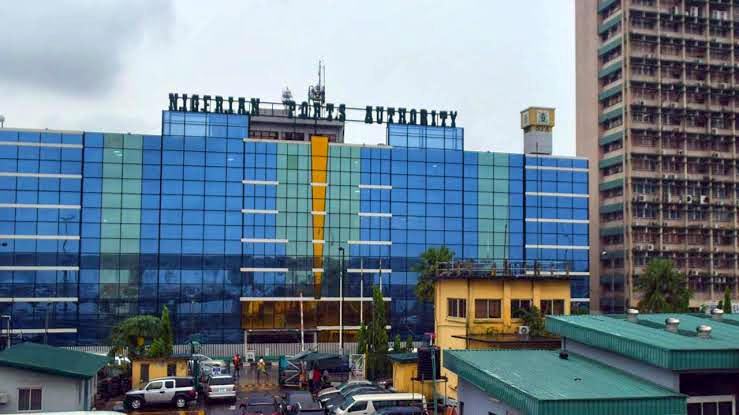
The immediate past managing director of Nigerian Ports Authority (NPA), Mohammed Bello, promised that the government would resume work of dredging the seaport, but it has been moribund.
Prime Business Africa recalls that NPA set aside $1 billion last year to rebuild the port complexes at Tincan Island, Apapa, Rivers, Onne, and Calabar.
However, there are growing concerns regarding the delay in the rehabilitation of the ports.
Only Lagos Seaports Functional
Out of the six ports, only the Apapa Port, Tincan Island, and the Lekki Deep Sea Port, which is located in Lagos, are operational at the moment.
In an interview with Arise News recently, Mr Emmanuel raised concerns about the negligence of other ports in the country while paying more attention in Lagos which has a population of only about 18 or 20 million. Expressing his displeasure over the federal government’s abandonment of ports in the Eastern corridor, he asked: “How do you build an economy when the smallest state by landmass that has the highest per capita income with the highest population, has the only functioning seaport in Nigeria while everybody else is left to go home and dry.”
The economic expert criticised the Federal Government’s policy which designated Onne port as exploration and production for oil and gas which means that importers would have to pay more for any goods brought into the port that is non-oil and gas cargoes. This, he said, makes the Onne port uncompetitive, as it makes Lagos the preferred seaport for bringing other non-oil goods into the country, especially cars which is one of the major goods imported into the country.
He told the president that over concentration of development of Lagos ports and other infrastructure to the exclusion of other parts of the country amounts to “economic injustice.”
While buttressing his claims that everything is being done to favour only Lagos economy, he said that apart from the Calabar deep seaport that has not been rehabilitated, all arrangements has been made for the Akwa Ibom Deep Seaport project in Ibom to commence but “the Federal Government has sat on it.” According to him, looking at the ownership structure, 20 per cent of the equity shares belong to the federal government, 20 per cent to the state government, while 60 per cent goes to interested private sector investor.”
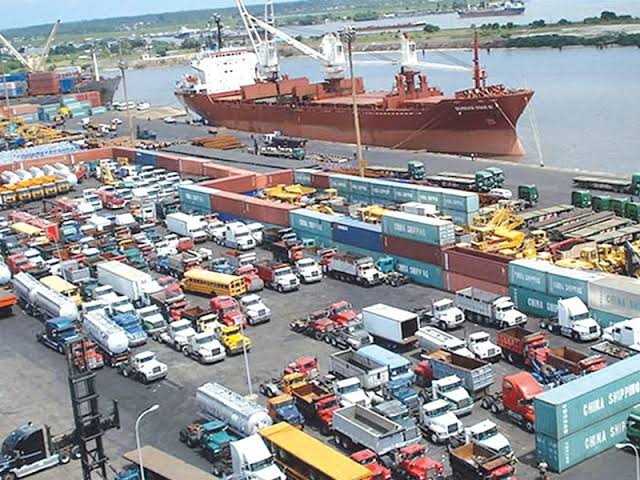
“Why is the federal government not putting in as much effort in making sure that they start building the Akwa Ibom Deep Seaport like they did for Lekki Deep Seaport in the Lekki Free Trade Zone?” He queried.
“How can Lagos have three functioning seaports with a fourth one in the works, and every other place is languishing?
“How do you build an economy when everything is centred around Lagos? Is it because the Lagos establishment is afraid that if there’s an operational seaport in the Eastern Maritime Flank, which graphically is better for maritime operations, you’re going to have diversion of port operations from the South-east to South-south, the North-east to Akwa Ibom; is it because they are afraid of revenue losses? It doesn’t make any sense. We have to say the truth to power,” he added.
Highlighting the negative economic implications of the current port system, the analyst said importers incur huge costs in moving containers from Lagos to the East which are factored into the prices of goods leading to higher inflation.
He stated that port categorisation and fee structure put in place by the government has impact on port operations in terms of vessels traffic.
“Imagine Lagos has the most functional sea ports in Nigeria with appropriate port categorization and fee structure, where else will cargo owners request their goods are delivered to?
“Also reckon that the Port Operators have the capacity to call vessels to a particular port because of the structure the government has created around emphasising maritime operations in one region over another,” he stated in a tweet on Wednesday, 15 January.
READ ALSO: What About Nigeria’s Eastern Seaports? The Startling Statistics!
Some Nigerians took to social media to also highlight the benefit of port decentralisation.
An X user with username Ughumba @UghumbaPlaintif, wrote: “Port decentralisation has many advantages to the development of Nigeria. Our roads are not engineered to sustain the amount of freight that in most countries, are transported by rail. I think the FG should allow the shipping companies to make that determination of where to operate.”
Bashir @BashirH00404265 said decentralizing the ports system would create more job opportunities for the working population. “Imagine the number of job opportunities that will be created in those states,” he stated.
Port inefficiency, Economic losses
There has been reported cases of economic losses due to inefficiency in the ports stemming from a number of factors.
Last year, members of the House of Representatives raised the alarm that Nigeria was losing a staggering $7 billion annually to inefficiencies and poor management of the country’s seaports.
The lawmakers regretted that Nigeria’s seaports receive barely 10 per cent of West African imports out of 60 per cent they were meant to receive, while others are lost to neigbouring countries.
They lamented the under-utilisation of the seaports which can increase national revenue and the Gross Domestic Product (GDP).
“Nigeria’s seaports receive barely 10 per cent of West African imports out of 60 per cent destined for Nigeria, a significant economic loss due to poor management and inefficiencies, estimated to cost $7 billion annually,” said Julius Ihonvbare, a House of Representatives member representing Owan Federal Constituency.
“Most ships bringing goods to Nigeria prefer to go to other ports order than Nigerian ports. Indeed the Benin Republic benefits from Nigeria’s large market, while Cotonou remains a popular importer’s haven.
“Huge trade cargoes are lost to Togo and other neighbouring countries from where they are offloaded and transshipped to Nigeria due to Poor shipping connectivity and shallow drafts of the port channels which lead to trade cargo losses, estimated to be N250 billion in 2016 alone,” the lawmaker further stated.
Port congestions
Also congestions around the Apapa port in Lagos is another challenge inhibiting the port sector growth and contribution to the economy .
The Apapa Port lost West Africa’s leading position due to congestion and poor quality services to shippers.
The Apapa Port, which handles about 1 million TEU annually, lost 30 per cent of its container traffic over five years due to several factors bedevilling its inability to deliver efficient services to cargo owners.


